
Sam Asgarian, MD, MBA discusses how PrismRA uses a patient’s disease signature to match them with a therapy best suited for them and how this new technology has the potential to produce faster, better outcomes in this patient population.

Sam Asgarian, MD, MBA discusses how PrismRA uses a patient’s disease signature to match them with a therapy best suited for them and how this new technology has the potential to produce faster, better outcomes in this patient population.

As the Annual Oncology Nursing Society® returns for its first in-person meeting since the COVID-19 pandemic began, nurses from across the country speak to Oncology Nursing News® about their in-person experience.

The experts at Avalere, Ryan Urgo & Neil Lund, shared insights with MHE into the politics of a less ambitious Build Back Better bill and the healthcare provisions it might include. If a "skinny bill" doesn't get passed, the healthcare action of the Biden administration might shift to CMS Innovation Center and payment models, including a successor to the Oncology Care Model.
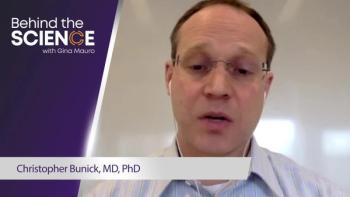
In this Behind the Science, the role of the allied health care worker is explored. With many states passing laws to expand their authority as health care providers, there has been a debate as to how big of a role physician assistants, nurse practitioners, registered nurses and more should have in patient care.

During Colon Cancer Awareness Month, Rachel Pearlman, MS, LGC, speaks to the importance of genetic testing in colorectal cancer. Although universal tumor screenings still have an important place in the treatment landscape, she notes that it shouldn’t be the only factor driving genetic testing anymore. She explains how universal testing is not effective in catching all cases of Lynch syndrome and a significant portion will not pick up mismatch repair variants. Additionally, she speaks to her work on the Ohio Colorectal Cancer Prevention Initiative and how the efforts have led to exploration of accessible gene testing in other disease types such as endometrial cancer.
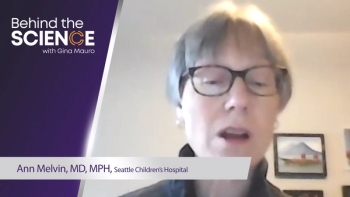
Therapies within HIV care and prevention have come a long way in recent years. Not only is there the addition of new antiretroviral therapies (ART) being approved, but novel delivery of these medicines such as long-acting injectables are seeing greater utility and offering patients flexibility with newer treatment options. In addition, the advent of pre-exposure prophylaxis (PrEP) therapy is helping people who are at risk of HIV. Clinicians and stakeholders offer insights and perspective on these vital HIV care and prevention therapies and their true impact.

Dr. Judd W. Moul, MD, editorial board member for the journal ONCOLOGY® and James H. Semans, MD, Distinguished Professor of Urologic Surgery at Duke University School of Medicine, leads a discussion with medical student Kostantinos E. Morris, BS, on the case of a patient who presented to their clinic with elevated prostate-specific antigen levels and multiple imaging tests that appeared to indicate an absence of malignancy. They discuss why they continued to investigate the cause of the elevate PSA levels, how they overcame the patient’s hesitation for more testing, and the ultimate outcome of the case.
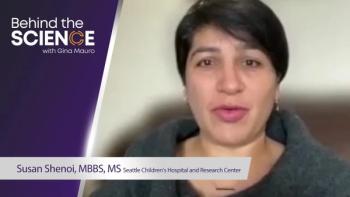
Five experts were asked “In your opinion, are glucocorticoids more helpful or harmful in treating rheumatic disease?"
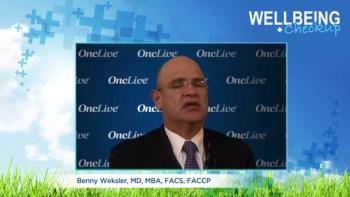
Benny Weksler, MD, MBA, FACS, FACCP, discusses current disparities in lung cancer and how Allegheny Health Network Cancer Institute is working to address them.
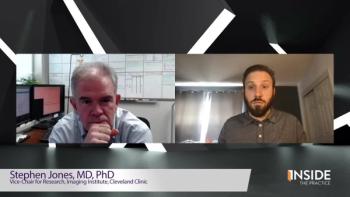
In this episode of Inside the Practice, Dr. Stephen Jones, a radiologist by trade, offers an in-depth look into the advances in magnetic resonance imaging that Cleveland Clinic is now leveraging in clinical practice. Specifically, he speaks to the capabilities of new 7-Tesla MRI machines, which Cleveland Clinic has now installed on-site in Ohio.

Equitable care has been a long-standing issue in dermatology characterized by a lack of diversity in clinical trials and management criteria that fails to account for diverse skin types. Key opinion leaders at the 2022 American Academy of Dermatology Annual Meeting spoke with The American Journal of Managed Care® on factors that continue to exacerbate health disparities for minority populations and current efforts to address these concerns in dermatology.

Nurse Heather Manus discusses her role in helping to pass a new medical cannabis bill in California called SB 311, also known as “Ryan’s Law,” which requires healthcare facilities to allow the use of medical cannabis on their premises for terminally ill patients with a valid medical cannabis card or recommendation from their physician. Heather also offers a preview of her talk at the upcoming Cannabis Science Conference West and shares important information for nurses to gain more education about medical cannabis.
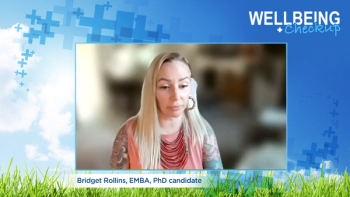
On this episode of “Wellbeing Checkup,” the vice president of Thrive Pet Healthcare who is currently a PhD candidate with a dissertation focus on the high suicide rates in veterinary medicine, touches upon toxic work environments at the clinic and their impacts on mental health.
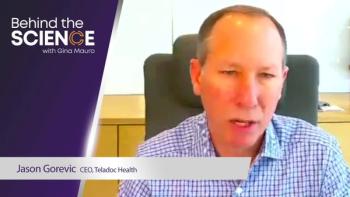
Telehealth usage has soared. An HHS report says Medicare telehealth visits increased 63-fold between 2019 and 2020, although it has tapered off some since. Some of that increase can be attributed to the relaxation of Medicare rules that were part of the federal government’s declaration of a public health emergency (PHE). The PHE has been extended another 90 days and an appropriations bill earlier this year said the waivers of the telehealth rules will extend 151 days after the public health emergency is over. Still, there are lot of questions about which if the waivers might be made permanent and how that will affect the usage of telehealth.

In 2021, the American Contact Dermatitis Society named acetophenone azine, an allergen found in such substances as soccer shin guards and flip flops, the “allergen of the year.” What does this mean to this pediatric population; how can pediatric health care providers treat this allergen; and what exactly does it mean to be the “allergen of year?” Dr. Bernard A Cohen, the dermatology column editor for Contemporary Pediatrics, explains it all.

Dr. Yehuda Handelsman discusses how he has navigated his role as the medical director and principal investigator of the Metabolic Institute of America for more than 20 years, which includes taking lead on the organization’s pair of annual conferences: The World Congress on Insulin Resistance and Diabetes and the Heart in Diabetes.
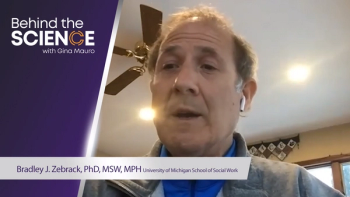
Psychosocial issues, such as fear of recurrence, can affect both the quality of life and outcomes for patients with cancer. For today’s episode of Behind the Science, two oncology experts discuss what’s being done to address the emotional side of cancer, and why it's important.

On this episode of Deep Dive, dvm360 explores the world of veterinary genetics testing and how it can be used to help solve anything from how a pet passed away to identifying a murder suspect.

Carlie Traylor, PharmD, discusses the Community Pharmacy Fellowship from the National Community Pharmacists Association and CPESN that connects community pharmacist and focuses on 3 main themes: transformation, managerial skills, and patient care.
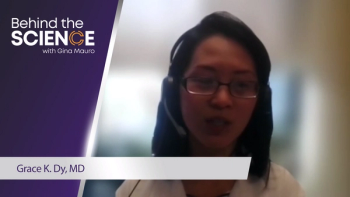
Presenters highlight some of the key presentations to come out of the 2022 AACR Annual Meeting.

Dr. Bridget A. Bagert sat down with NeurologyLive to discuss a hot topic of clinical concern in multiple sclerosis: Epstein-Barr virus. After 2 decades of research suggesting a link between EBV and MS, the findings of a recently published paper provided the most robust dataset to date, with analyses suggesting there may be a causal link between EBV infection and MS disease onset. Bagert, an expert in the field of MS who has focused on this link in her clinical research, offered her perspective on the findings the what is known to this point.
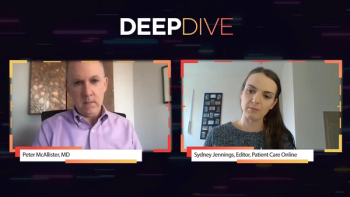
On this episode of Deep Dive, headache specialist Dr Peter McAllister joins us to discuss migraine prevention and specifically the role that the newly approved oral migraine preventive medications may play in treatment of migraine in primary care settings.
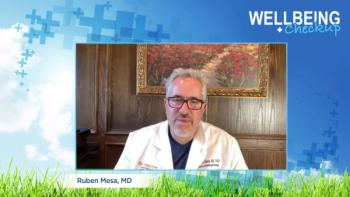
Ruben Mesa, MD, of UT Health San Antonio MD Anderson Cancer Center, discusses disparities in the oncology field and initiatives being undertaken to address them.

Drs. Kanani Titchen, Helen Wang, and Samantha Hill discuss the importance of having “the talk” with adolescent patients including “the lay of the land,” dealing with shy patients, and allaying the fears of both patient and parent.

Ophthalmologists across the country weigh in on what they envision for the future of ophthalmology. From emerging technology to breakthrough therapies and improved patient care, the vision of these doctors may be closer than we think.

In this episode of Deep Dive, pharmaceutical experts Jason Goodchild and Mark Donaldson share best practices for prescribing decisions for dental practices, including newer synergistic methods, along with updates on managing patient pain and taking steps to combat the opioid crisis. Many of today’s practices can keep patient pain levels low without always going the opioid route first.
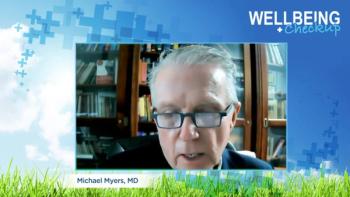
Michael Myers, MD, author of the book "Becoming a Doctors' Doctor: A Memoir," discusses how to foster a better work environment for physicians.

In this interview, Ellen Marmur, MD, discusses the history of fillers at her practice and how her love for traditional dermatology, such as helping patients with psoriasis or atopic dermatitis, led her to discover a passion for aesthetics. The topics of how filler is used, managing patients expectations, and the future of combination treatments are all discussed.

HIV is a lifelong prognosis, which is why the Positive Health Clinic offers lifelong care to its patients holistic care that addresses every aspect of their patients’ lives. Allegheny Health Network’s Positive Health Clinic (PHC) serves people living with HIV, holistically addressing their patients’ needs. Tori Pipak, PA-C, AAHIVS, a physician assistant, has worked at the PHC for 5 years. The PHC is funded by a Ryan White grant, which allows them to provide a multitude of services that people living with HIV typically could not receive through the traditional healthcare system. Some of these include social services for housing and utilities, food services like SNAP benefits, and mental health services.
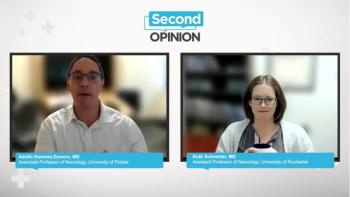
Adolfo Ramirez-Zamora, MD and Ruth Schneider, MD join Second Opinion once more, this time to discuss participation in clinical trials from both a patient and provider perspective.